The forward-looking indicators for Australian housing construction continue to worsen, pointing to worsening housing shortages ahead.
The latest data from the Australian Bureau of Statistics (ABS) on dwelling approvals, commencements, and completions shows that each indicator is tracking around decade lows at the same time as Australia’s population is growing at an unprecedented pace:
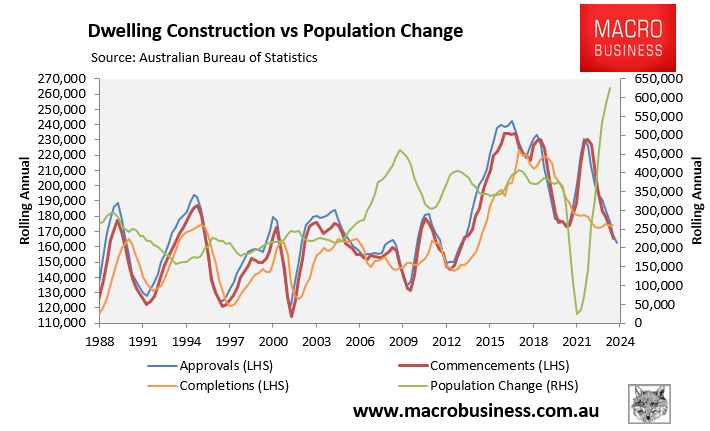
Loans for the purchase or construction of new homes is also tracking at historical lows, according to the ABS:
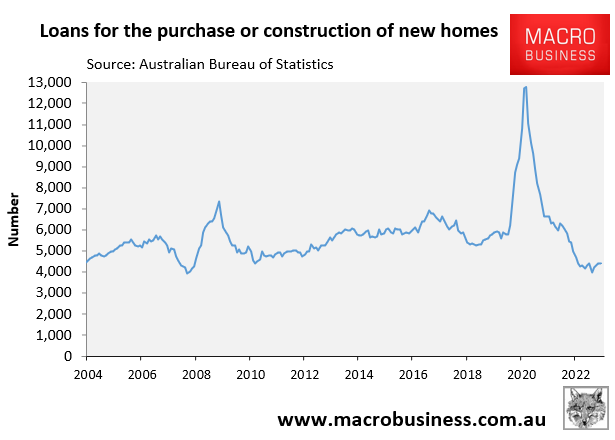
Now we have the trifecta of housing doom, with Justin Fabo at Antipodean Macro posting the below chart showing that “new detached house sales in Australia rolled over in Q4 2023”:
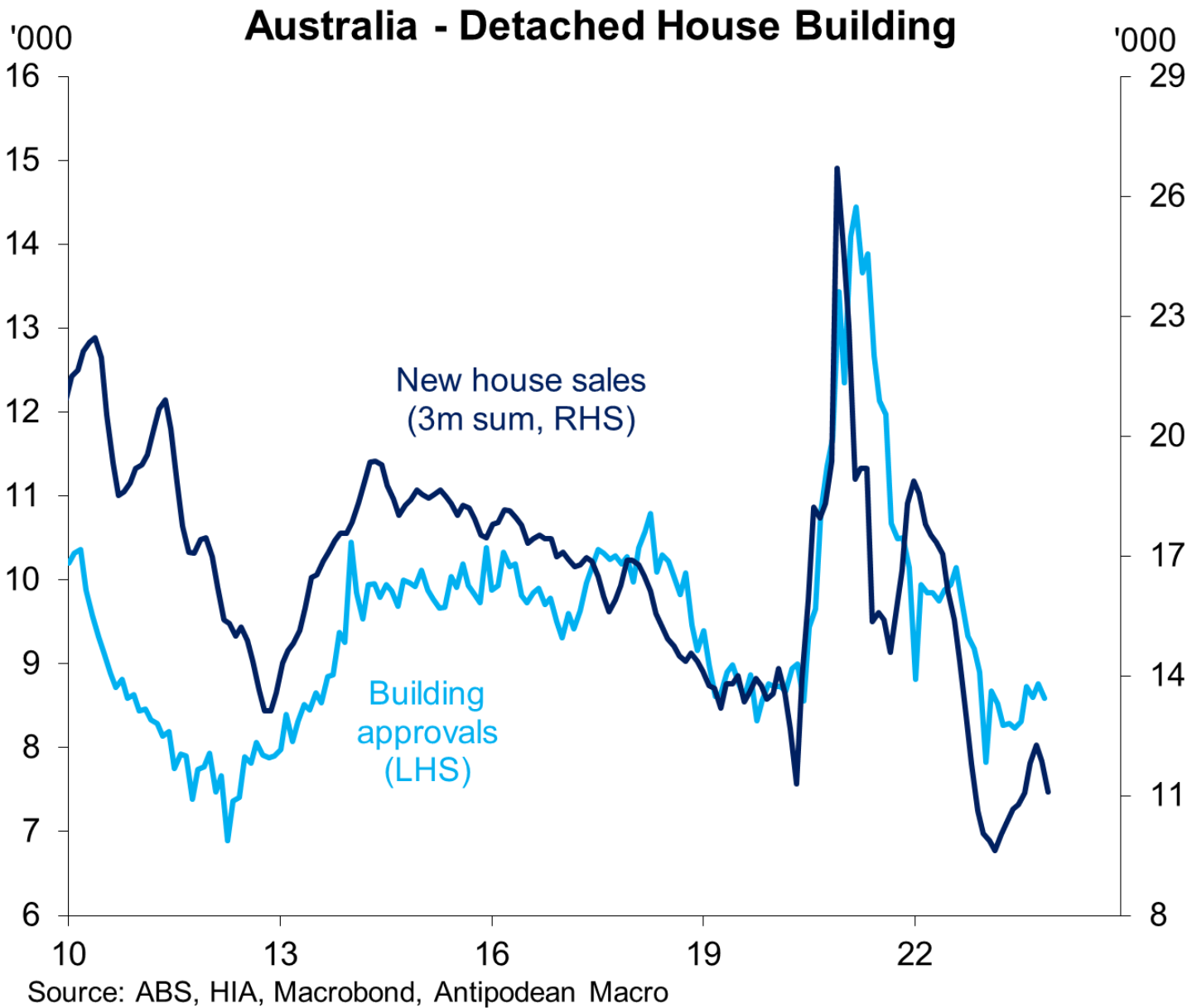
The results are an absolute shocker and highlight why the Albanese government’s target to build 1.2 million homes over five years (i.e. 240,000 homes a year) to keep up with record population growth is a fantasy.
Australia added only around 170,000 new homes last year, against a population increase of around 620,000.
Based on the above indicators, construction levels will fall further in 2024 and possibly 2025 as well, amid high interest rates, elevated materials costs, and labour shortages.
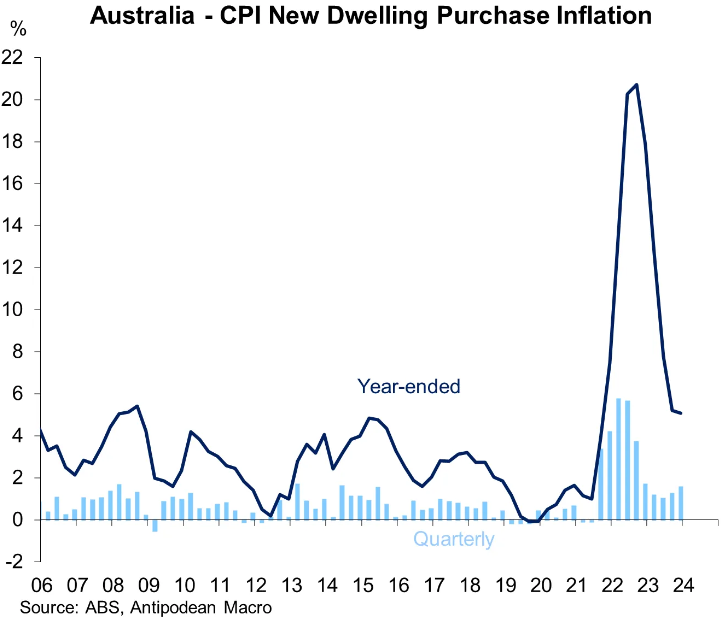
The only realistic solution to Australia’s housing shortage is to dramatically reduce net overseas migration to historical levels of around 120,000 a year:
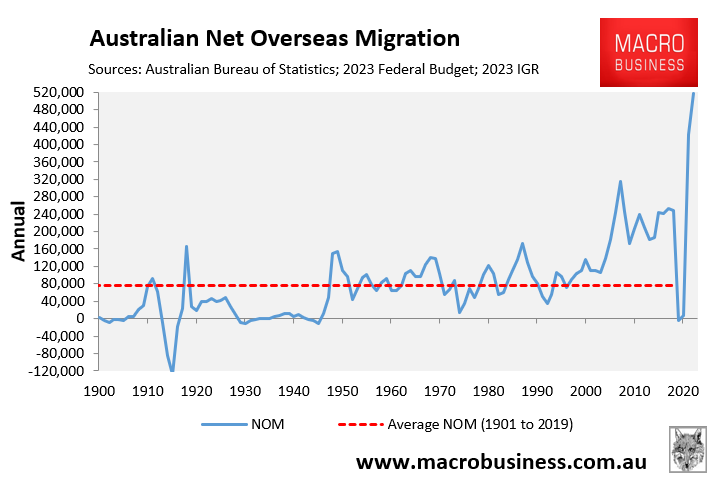
Doing so would take the pressure off housing demand and ensure that Australia’s rate of construction exceeds population growth while also encouraging quality over volume.
If Australia’s population is allowed to continue growing like a science experiment via mass immigration, the housing shortage will be irreparable.
Let’s stop pretending otherwise.

